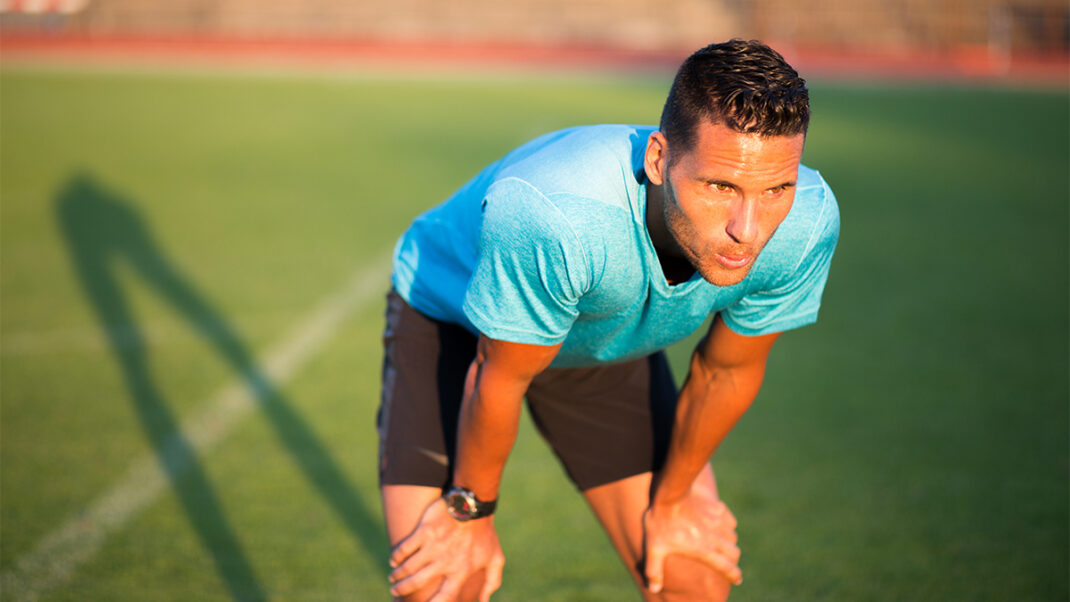Training Tips for Vegetarian Athletes
Like many athletes, I was recently looking for a leg up on the competition. I was preparing for a fall marathon and already working hard on my running and speed work, but I wondered if by tweaking my diet, I could gain an edge. As a registered dietitian and sports nutrition coach, I was aware of several successful elite athletes who practiced vegetarianism. I had also read the latest research on the topic, which determined that there are no significant changes in physical performance when athletes avoid animal products, as long as they eat a vegetarian diet that is balanced, varied and adequate.
Okay, I was up for the challenge of adopting a vegetarian diet. But what exactly is a “balanced, varied and adequate” vegetarian diet, and how hard would it be to follow and maintain such a pattern of eating?
Protein Needs of Veggie Athletes
To begin with, I focused on the vegetarian athlete’s macronutrient needs, namely protein. Protein is involved in numerous physiologic processes, including building lean muscle, supporting the immune system and maintaining nitrogen balance. The most recent position statement by the ADA, DC and ACSM confirms what previous research found: i.e., the protein needs of athletes are higher than those of most other people. This is probably because of exercise-induced muscle breakdown and the resultant need for repair; the body’s energy needs; and the additional protein needed to support gains in lean muscle mass (ADA, DC & ACSM 2000). As a result, vegetarian and vegan athletes need to pay close attention to their protein choices and serving sizes.
The good news is that it is uncommon for vegetarians who consume adequate amounts of plant and vegetable proteins to experience a severe protein deficiency. However, vegan athletes may benefit from the use of protein supplements and nutritional shakes to meet their need for essential amino acids (those that are not made in the body and must be consumed in the diet). To decrease their risk for protein deficiency, vegan athletes should vary their sources of protein and rely heavily on legumes and beans. In general, a modest 10% increase in protein intake over the Acceptable Macronutrient Distribution Range of 10%-35% may be beneficial to all vegetarian athletes, to allow for the incomplete digestion of plant proteins (ADA 2006).
For adults the recommended daily allowance (RDA) for protein is 0.8 gram per kilogram of body weight per day (g/kg/day), or 0.36 g per pound of body weight per day (g/lb/day). The protein recommendation for endurance athletes ranges from 1.2 to 1.4 g/kg/day (0.55-0.64 g/lb/day) (Venderley & Campbell 2006). During times of intense training, including resistance exercise, the recommendation increases to 1.6-1.7g/kg/day (0.73-0.77g/lb/day) (Venderley & Campbell 2006). Regardless of whether they follow an omnivore or a well-balanced herbivore diet, most athletes do not experience much difficulty in achieving these recommended intakes (Venderley & Campbell 2006).
Fat Needs of Veggie Athletes
An indispensable part of any athlete’s diet, fat provides necessary fuel and essential fatty acids; it is also vital for the absorption of fat-soluble vitamins. Athletes should aim to obtain 20%-25% of their total calories from fat (ADA, DC & ACSM 2000).
This range is appropriate for vegetarian and vegan athletes as well as omnivores. However, the focus of the vegetarian athlete’s diet should be on foods that are high in mono- and polyunsaturated fats, such as nuts and nut butters; seeds; tahini; olives; avocados; and plant oils, such as olive oil (ADA, DC & ACSM 2000).
Carbohydrate Needs of Veggie Athletes
Athletes need higher carbohydrate intakes than their sedentary counterparts because carbs are the working body’s preferred source of fuel. An athlete’s carbohydrate requirements depend on the type of exercise practiced, be it endurance activities or resistance training. In general, smaller athletes and those in light training should consume carbohydrates at the low end of the range, whereas larger athletes, those in heavy training or those looking to gain weight should aim for the higher end of the range.
Fortunately, a diet based on plant sources and high in fruit and grains is naturally rich in carbohydrate. Studies have found that among the general public, the carbohydrate intake of vegans ranges from 50% to 65% of total energy intake, while the carb intake for lacto-ovo-vegetarians ranges from 50% to 55% (Messina & Messina 1996).
Micronutrient Needs of Veggie Athletes
Common micronutrients that should be closely monitored and possibly supplemented in vegetarian and vegan athletes include vitamin D, riboflavin, calcium, vitamin B12, iron and zinc. Animal products are the most potent sources of these nutrients. Deficiencies can lead to impaired performance; fatigue; low bone density; and poor muscle growth and repair (Barr & Rideout 2004; Campbell & Anderson 1987; ADA, DC & ACSM 2000; Venderley & Campbell 2006).
By consuming a diet rich in whole grains, fortified foods and complete proteins, athletes can greatly reduce their risk for vitamin and other micronutrient deficiencies. For most athletes with adequate energy intakes, the RDAs or Dietary Reference Intakes (DRIs) should suffice. However, vegetarian athletes–who have excessive losses of micronutrients in the urine, sweat and feces–may require supplementation. For specifics, see the sidebar “Recommended Nutrient Intakes for Athletes.”
Tips for Vegetarian Athletes
Here are a few more tips to help your vegetarian athlete clients perform their best while keeping energy levels high and minimizing the risk for malnutrition and fatigue.
- Supplement the diet with high-energy foods, such as nuts, heart-healthy oils, dried fruit and other nutrient-dense foods.
- Try to eat small, frequent, nutrient-packed meals throughout the day to keep energy and blood glucose levels stable.
- Monitor protein intake in order to avoid protein deficiencies.
- Maintain a healthy body weight to prevent excessive weight and nutrient loss.
- Consume adequate calories to recover the energy burned during training.





